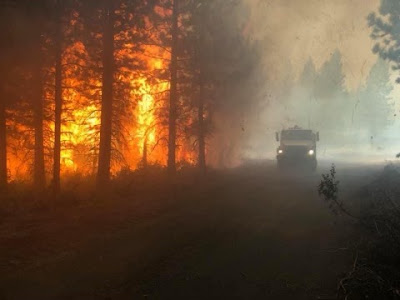If you have a positive attitude and constantly strive to give your best effort, eventually you will overcome your immediate problem and find you are ready for greater challenges. – Pat Riley
A positive attitude causes a chain reaction of positive thoughts, events and outcomes. It is a catalyst and it sparks extraordinary results. – Wade BoggsMy last entry was about leading up and effecting change in our agencies, districts, and departments; we are taking on this challenge to make things better or to improve ourselves or culture around us. The piece I want to talk about is positivity and the hope positivity can create and direction that can be created with it.
If positivity is growth and hope, then negativity, which to me is a cultural assassin of an organization, takes away hope and growth. Negativity effects our co-workers, leaders, day-to-day operations, and customer service; but the hardest hit of all is morale.
We are all personal examples of how negativity can affect an individual, a crew, or an organization. As leaders our duty is to promote change and growth. This blog will focus on building positivity around us and our crews.
Obviously, it is extremely easy to say, “the road to hell is paved with good intentions;” but affecting it daily is the challenge. My crew at work has had significant challenges over the last two years. As we were sitting around our kitchen table recently, I challenged them with the idea of “leading up” and affecting change. My challenge was met with some pushback; but the first step was to eliminate the negativity, leave the problems in the past, and work on being positive through good work, better relationships, and better communication directly related to the four people (all of whom are not promoted and have no formal leadership position) at the table.
I offered the crew two simple steps to help stay away from the negative influences that have been the “pink elephant” around our crew.
No more complaining. It does not matter what the problem is. If we continue to complain and gripe about it, nothing is getting done to make it better.
I know how hard it is to just stop complaining cold turkey, and some “venting” is a necessary part of moving forward. But where is the line between complaining and venting? How do you know when you are crossing the line or when enough is enough?
My personal advice is to give each person 5 minutes to say whatever they need to say, to spew negativity, to cuss, rant, and rave. When that timer goes off that it’s done, over. After the 5 minutes, redirect the conversation to positivity—how can we fix the problem, how can we make things better.
My partner and I have even gone to having one 5-minute session in the morning and one in the afternoon. This allows the frustration to be released and to stay focused and driven on moving forward.
2. Fix small problems and be detail oriented. When you hear people complaining it usually starts with the tiniest thing (a light isn’t working, the station is dirty, towels are left in the dryer, a hose is left on the ground, attack packs not being repacked, a dirty hose is left on the rake.) These little things are the sandpaper that starts eroding positivity, slowly creating conflicts and a starting point for complaining. Complaining is the slippery slope that destroys positivity. We have all been around the station or crew when that one small thing starts a snowball down the hill. Before long leadership fails and agencies are being questioned and torn apart. If we limit or make a larger effort to directly affect small issues that we can fix or address directly, we avoid that snowball and stop it before it cascades down the hill to a 30- to 45-minute complaining marathon.
Now for the two quotes that started this post. I choose them because they directly relate to the idea of increasing positivity and the effects of positivity on our personal lives. If we can work through conflicts and redirect our energy, our cultures can heal and grow. If we are constantly dwelling and rehashing, there is no moving forward. We will inevitably fall into the hole of negativity.
Which work environment do we want to work in or be led by?
Christopher Ayer is a Firefighter/ Firefighter Type 1/ Paramedic for Corona De Tucson Fire Department in Tucson Arizona. The expressions and views arethose of the author.

No comments:
Post a Comment